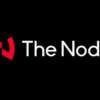Talent Collectives
Shine Talent Group’s Jess Hunichen Advocates For Creator Value
In 2015, Jess Hunichen, hailing from Australia, met Emily Ward in Toronto through a mutual friend while they were both working in public relations. The duo clicked immediately, recognizing a significant opportunity in the then-nascent creator space. During extensive conversations with both sides of the market, they uncovered a crucial disconnect: creators struggle to value their work while brands hesitate to invest in unfamiliar partnerships.
This mutual confusion created the perfect opportunity for an intermediary, so Jess and Emily decided to launch one—Shine Talent Group.
“We can sit nicely in the middle here and help both sides,” Jess explains. “The intention originally was that it would drive more PR work our way, but it just took off very quickly.”
Their timing proved prescient. A decade ago, when “mummy bloggers” dominated the influencer space, the industry lacked standardization. Shine stepped in to provide structure and advocacy, first in Canada, then expanding to the United States and, most recently, opening a UK office two years ago, all “driven by the demand of creators and brands.”
Today, Shine Talent Group represents approximately 300 creators across three countries with a team of 80 employees. While their roster primarily features lifestyle creators on Instagram and TikTok, they’re deliberately adding expertise in gaming, tech, and YouTube through strategic hiring.
“We talk a lot about having big agency energy, with a boutique touch,” Jess says. Unlike competitors who might assign 40-50 creators to each manager, Shine caps the number of creators assigned to each talent manager at around 10.
“To be a great talent manager, you need to be watching the stories, looking at all the content, understanding what your creator is doing, and then having an understanding of what’s going on behind the scenes,” Jess emphasizes. This intensive approach requires daily content monitoring, strategic planning, and ongoing market awareness.
Jess acknowledges that while this high-touch model might be less immediately profitable than managing larger rosters, it delivers better long-term results: “That attention and those personal relationships with talent are so important. Our superpower as a company has been that we do care and we are people, and this is not AI, and there are no robots behind the scenes sending in offers.”

Emily Ward & Jess Hunichen | Image credit: Shine Talent Group
Industry Changes and Business Growth
Over the past decade, Jess has witnessed notable changes in the creator economy, particularly in compensation. “Budgets have changed dramatically,” she recalls. “I remember the first time we locked in a deal that was $1,000, and I was like, ‘We’ve made it. There’s no stopping us.’ Today, those figures have multiplied many times over.”
The industry has simultaneously experienced both more creators and more opportunities. “There are more creators, so it’s diluted in some ways, but the industry has grown. The value of this industry has grown,” Jess observes. This growth has attracted serious investment interest, with Shine fielding multiple acquisition offers throughout its history.
“There was a period at the end of last year where within the span of six months, there were four different VC companies that came to us saying, ‘we’re doing a roll-up,'” Jess shares. “We were having such a laugh about it. We’re like, ‘who told the men in VC that there’s money here?'”
Despite these offers, Shine has remained independent, viewing them as validation rather than exit opportunities. “What we’ve always seen them as is such a motivator to continue to build the company,” Jess explains. “We’re either setting ourselves up very well for something like that, or we’re setting ourselves up to have a really successful company in general.”
Expanding Beyond Talent Management
Shine’s success has enabled Jess and Emily to launch two additional ventures addressing broader needs in the creator market. “The Thread” is a project management tool for talent management agencies that Shine built internally and is now licensing to other agencies, with plans to expand to self-managed creators.
“We don’t want to do this in a traditional way,” Jess says about their fundraising approach for “The Thread.” Rather than seeking traditional venture capital, they’re pursuing investment from industry peers. “I want investors who are our ‘competitors.’ I want them sitting at the table with us,” she explains. This collaborative mindset also reflects Shine’s broader philosophy: “I want this industry to grow. I want other agencies to do very well. I think together we’re much more powerful.”
“Love x Money Ventures,” Jess and Emily’s other initiative, focuses on investing in promising companies, with an initial emphasis on women’s health. “Female founders do not get the same funding as male founders,” Jess notes. The venture is also developing a creator equity program that transforms content into investment currency.
“Instead of a creator investing $100K in cash, they could invest $100K in content,” Jess explains. “I believe in this industry so much, and I think having creators having a seat at the table and sitting on more cap tables will do a lot for the validity of this industry.”
Building Sustainable Creator Businesses: Insights from VidCon 2025
At her VidCon 2025 panel on “Maximizing Revenue: Building Sustainable Income Streams,” Jess shared strategies for creators to diversify their income sources—insights based on Shine’s decade of experience in the field. The panel, which also featured creator Jesse Jaurji and REACH CEO Dylan Huey, addressed both emerging creators and brand marketers seeking more effective partnership structures.
Jess’s philosophy on monetization remains consistent: it should be a result, not the goal. “I don’t think that monetization should be the aim,” she explains. “I feel the same way about growth. We discuss this frequently with emerging creators who have this magical number in their minds. And my mentality has always been to create for the audience that you have, give them value over and over again.”
As Jess notes, this approach builds genuine connections with audiences who then become advocates rather than critics when brand partnerships emerge. “The absolute epitome of success in this industry is when you do a paid campaign and your audience is celebrating that with you,” she says. “Instead of them being like ‘Another ad, I hate this,’ they’re like, ‘Oh my Gosh, I know you’re the biggest Nike fan ever, and now you got to do this campaign with them—we are hype for you.’”
This audience support translates directly to campaign performance. Jess explains, “Yes, you’re getting paid by Nike. Amazing. We love that. But also, your audience is celebrating that with you. They’re engaging, they’re liking, they’re sharing, they’re saving.”
Diversifying Income Beyond Brand Deals
During her VidCon panel, Jess highlighted emerging opportunities beyond traditional brand partnerships. While sponsorships remain central to creator income, Shine has identified publishing as an unexpectedly lucrative avenue.
“We recently brought in a literary agent onto our team, and this talent is pumping out books,” she says, noting multiple six-figure book advances for their creators in recent months. “I probably wouldn’t have thought there was a crazy amount of money in it, but we’re seeing a lot of revenue come from that.”
Email newsletters, available through platforms like Substack and Kit, have also become major revenue generators, either through subscriptions or affiliate links. Jess emphasizes their importance for platform independence: “Make sure your audience knows where to find you. If you are producing content that lives on Instagram, TikTok, YouTube, Snapchat—you’re living in a rented space. You do not own that.”
This ownership becomes critical during platform disruptions, as demonstrated by recent TikTok ban concerns. “If a platform goes down, if your account gets hacked and banned—it happens,” Jess warns. “Having a way to contact your audience is very important.”
Creating Value for Both Sides
For brands seeking to structure meaningful creator partnerships, Jess offers straightforward advice: “Give the creators creative control. Trust that they know their audience, they know what they respond to, they know what they want to see.”
While acknowledging brands’ natural concerns about messaging, Jess encourages them to remember why they approached specific creators in the first place. “If you went to this creator because they do really funny skits, don’t try and make them do something serious,” she advises. “No one is better than them at knowing what their audience wants to see.”
This trust serves the interests of both parties. “They want to produce content that is going to do well,” Jess explains. “That’s their number one goal. And they want to do that even more so for sponsored content because that means more brands want to work with them if that kind of content performs well.”
Legitimacy and Legacy
As Shine celebrates its 10th anniversary, Jess remains passionate about elevating the legitimacy of the creator economy. “I’m very passionate about this industry being taken seriously,” she says, noting how the predominantly female-led space often faces dismissive attitudes.
“This industry is so dominated by women, and often our hobbies or endeavours are looked at as silly,” Jess observes. “What I’ve seen is creators, mostly women, who are supporting their entire families through this hobby. It’s so unbelievably impressive. And it’s not as easy as it looks, and it’s not as easy as just posting selfies.”
For Jess, advancing creator legitimacy means helping them build lasting wealth and influence. “How are we turning this into generational wealth for you? Do you want to write a book? Do you want to invest in companies? Do you want to be on the board of advisors for companies that you really believe in?” These questions reflect her focus on helping creators “build out their legacy.”





















